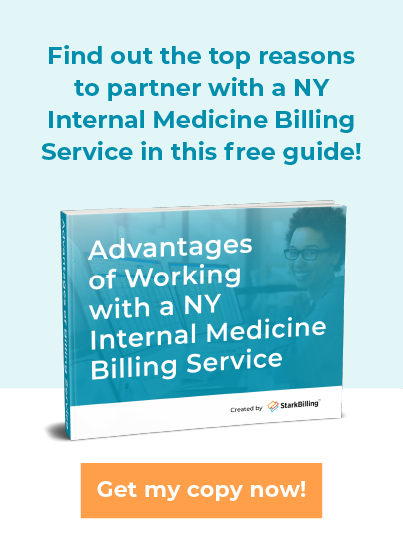A nurse practitioner (NP) is vital in today’s healthcare landscape, as they provide high-quality care to patients across a wide range of medical specialties. In New York, they are integral to the functioning of many medical practices, often acting as primary caregivers for patients. However, the complexities of billing for NP services can be challenging. Ensuring proper billing practices is essential to maintaining revenue flow and compliance with state and federal regulations.
This comprehensive guide details how to effectively bill for NPs in your New York medical practice. It covers key areas like scope of practice, coding, reimbursement models, documentation, and compliance.
Understanding Nurse Practitioners’ Scope of Practice
NPs are advanced practice registered nurses who have completed graduate-level education and are qualified to diagnose, treat, and manage acute and chronic conditions. They are also licensed to prescribe medications, make referrals, and provide patient education, which is why they may serve as primary healthcare providers in various settings. Overall, they bring a unique, patient-centered approach to healthcare, hence their increased demand across the healthcare sector.
New York is considered a “reduced practice” state for these nurses, meaning that while they can diagnose and treat patients independently, an NP must have a collaborative agreement with a physician for certain aspects of care, such as prescribing medications. However, New York’s regulations continue to evolve, offering more autonomy for experienced NPs. This is essential to note when it comes to billing, as it affects how their services are reimbursed.
A significant difference between billing for NPs and physicians is the reimbursement rate. Typically, services provided by NPs are reimbursed at 85% of the physician’s rate (under Medicare). This difference underscores the importance of understanding how billing works for these practitioners to avoid revenue losses.
Billing Fundamentals for NPs
NPs can bill for a wide range of services, including:
- Evaluation and Management (E/M) Services: Routine checkups, acute care visits, and follow-up appointments
- Preventive Care: Annual wellness visits, vaccinations, and screenings
- Chronic Disease Management: Ongoing management of conditions like diabetes, hypertension, and asthma
- Telehealth Services: Virtual visits (particularly significant with the rise of telemedicine)
Current Procedural Terminology (CPT) codes are part of the foundation of medical billing for NP services. The most common ones include:
- E/M Codes: For example, 99202-99215 for office visits and consultations
- Preventive Codes: 99381-99397 for annual exams and screenings
- Telehealth Codes: 99441-99443 for virtual care consultations
Using the correct CPT codes ensures accurate billing and prevents issues like claim denials or underpayment.
Reimbursement Models for NPs
Billing for NP services can follow two models:
- Direct Billing: The NP bills for services under their own National Provider Identifier (NPI) number. In this case, Medicare and most insurers will reimburse the practice at 85% of the physician fee schedule.
- Indirect (Incident-To) Billing: In this model, the NP’s services are billed under the supervising physician’s NPI number. This enables the practice to receive 100% reimbursement, provided that the strict guidelines are met (e.g., the physician must be present in the office during the visit).
Choosing between direct and indirect billing depends on the specific situation and the services provided.
In New York, most commercial insurance plans, Medicare, and Medicaid reimburse for NP services. However, each insurer may have different billing guidelines, so it’s critical for practices to review each plan’s requirements thoroughly to ensure proper reimbursement.
Documentation Requirements for NPs
Accurate and thorough documentation is essential to support NP billing claims. Every service must be recorded in detail, including the patient’s condition, the care provided, and the NP’s medical decision-making. Inadequate documentation can lead to claim denials and compliance risks.
The best practices for documentation are to:
- Ensure that all the services, tests, and assessments that the NP performs are fully documented.
- Use templates or EHR systems to maintain consistency in documentation.
- Avoid common pitfalls, such as failing to document the level of care or omitting critical details that support the billed service.
Compliance Considerations for NPs
Compliance with state and federal regulations is essential in billing for NP services. Practices must adhere to the Centers for Medicare & Medicaid Services (CMS) guidelines and New York state-specific rules. Regular updates to coding and billing regulations mean that practices must stay vigilant to avoid penalties and audits.
Common billing errors include:
- Upcoding: Billing for a higher level of service than provided
- Undercoding: Failing to bill for the full scope of services delivered
- Incorrect Modifier Use: Misusing modifiers, leading to denials
Regular audits of billing practices can help identify and correct errors before they lead to financial loss or regulatory issues.
How NPs Bill for Telehealth Services
With the rise of telemedicine, telehealth regulations have become critical. In New York, NPs are allowed to provide telehealth services, which must be billed according to state and federal guidelines.
Telehealth visits require specific CPT codes, such as 99441-99443, depending on the length and complexity of each virtual visit. Additionally, practices must ensure that the services are documented correctly, following HIPAA and telehealth regulations.
How NPs Can Stay Updated in Billing
Billing regulations and codes for NPs change regularly, making ongoing education essential. Practices should ensure that their billing staff receives regular training on the latest NP billing and coding updates. Attending workshops, webinars, or training programs from organizations like the American Academy of Professional Coders (AAPC) can be beneficial.
Recommended resources for staying updated on NP billing practices include those from:
Billing for NPs in New York requires a comprehensive understanding of state regulations and insurer-specific guidelines. Accurate billing is essential for maintaining revenue and complying with state and federal laws. By reviewing billing practices, investing in staff training, and keeping updated on regulatory changes, medical practices can optimize their billing processes for NPs and avoid costly errors.
If you need expert assistance, consider consulting a specialized billing service like StarkBilling to ensure smooth and efficient billing for NPs in your practice.
Capture more revenue, and grow your New York procedural-based practice with a specialized medical billing partner that has in-depth knowledge of the coding requirements for all your diverse procedures. Our tailored solutions aim to enhance coding accuracy, reduce denials, and expedite payments. Schedule a free consultation now.






